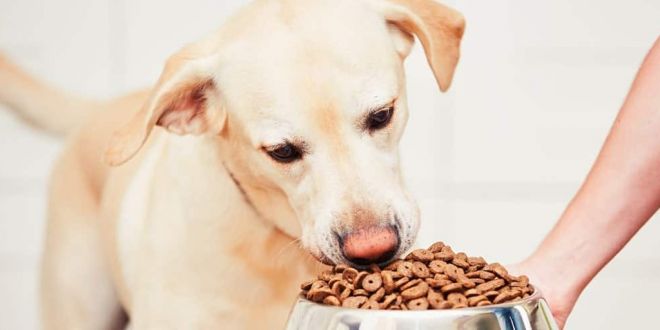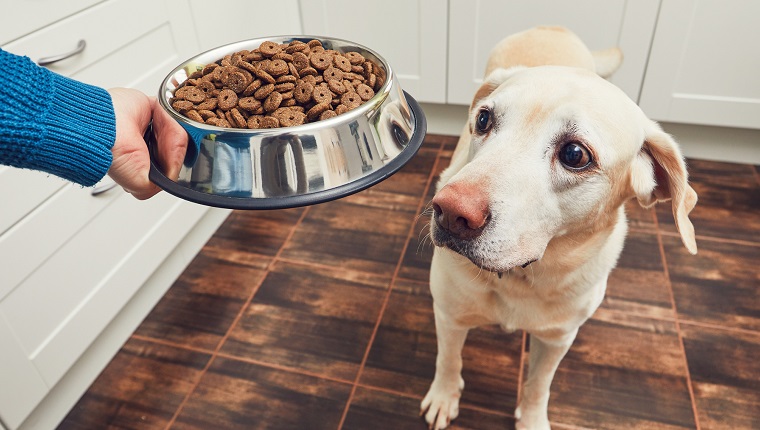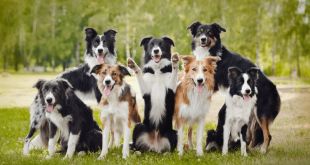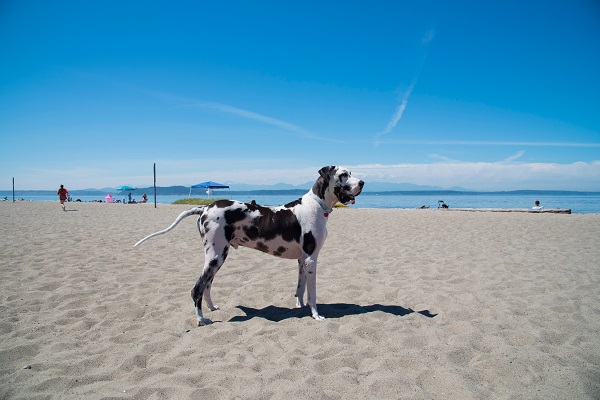Choosing the right food for your four-legged friends is a challenging task. Should you check around the pet food aisles of grocery stores, you’ll likely find a whole selection of brands, each claiming to be specially formulated for canine nutritional needs.
Before going into detail about what you should and shouldn’t feed your furry buddy, know that the best diet plan is one designed by your vet.
Rely on expert advice for appropriate portion sizes and the ideal balance of nutrients suitable for your friend. Each diet plan is typically customized according to your dog’s age, breed, size, lifestyle, and health needs.
1. Meat is NOT Absolutely Essential for Your Dog
Domestic dogs have evolved to be omnivorous, unlike their close cousins, wolves. They can digest both meat and vegetarian food and stay healthy. They do need adequate protein with essential amino acids for rebuilding tissues and muscles. However, these protein sources need not necessarily be animal products. You can choose vegan dog food made with fungi and yeast.
A good combination of vegan sources contains amino acids that act as building blocks for body cells. Adding ingredients like soy, beans, and whole grains to your buddy’s meals can also ensure they get the full range of vital nutrients.
2. Commercial Dog Food Brands Are Not Exactly Healthy
Most commercial dog food brands are made with sub-par meat, often from animals deemed disabled or unfit for human consumption. You should also look out for terms like “meat meal” listed in the ingredients. These are, in fact, animal by-products that are best unnamed.
You definitely would not want to add them to your best friend’s diet. Don’t let the smart packaging and your pet’s enjoyment.
Pets seem to love them because of the sugars and starches added to enhance their flavor, much like snack foods marketed toward humans. Such additives only raise the risk of diabetes and obesity.
3. Dog Food May Contain Toxic Preservatives and Chemicals
Store-bought pet food brands are designed for extended shelf life. Although natural preservatives are available, these varieties are typically expensive and can raise production costs. For this reason, manufacturers may add synthetic preservatives that are sometimes also used as pesticides.
Look out for chemicals like ethoxyquin, BHA, and BHT and carefully avoid them. Pet parents may also want to protect their buddies from heavy metal poisoning from cadmium, mercury, and lead in the food.
4. Some Added “Nutrients” May Not be Necessary
Yet another ingredient to look out for is “blood meal,” often disguised as a protein extender. Dried blood in powdered form is added to the dog food to raise its protein content by up to 300%. But, it’s also associated with a heightened risk of getting mad cow disease.
If the label specifies “added” vitamins and minerals, you may want to skip the brand. Most companies use additives to make up for the nutritional value lost because of extended storage. Oftentimes, dogs don’t really need these supplements or would achieve better health with whole foods.
5. New Foods Should be Introduced Gradually
When transitioning your little buddy to a portion of healthier food, you might want to introduce new proteins gradually. Give their digestive system time to adjust and adapt. You’ll also make sure that they don’t have allergic reactions and gastric disturbances.
While the best judge of your pet’s overall health is their vet, a thick glossy coat and healthy skin are other indicators that the new diet is working well. Preserve your four-legged friend’s newfound health, happiness, and wellness with customized dog portraits.
Choosing the right nutrition for your best friend can be a confusing task. Your best bet is to rely on your vet’s advice and simply pick foods that you would not eat. The rest should be easy!

 DogExpress
DogExpress





















 in Chandigarh, India.
in Chandigarh, India. 
